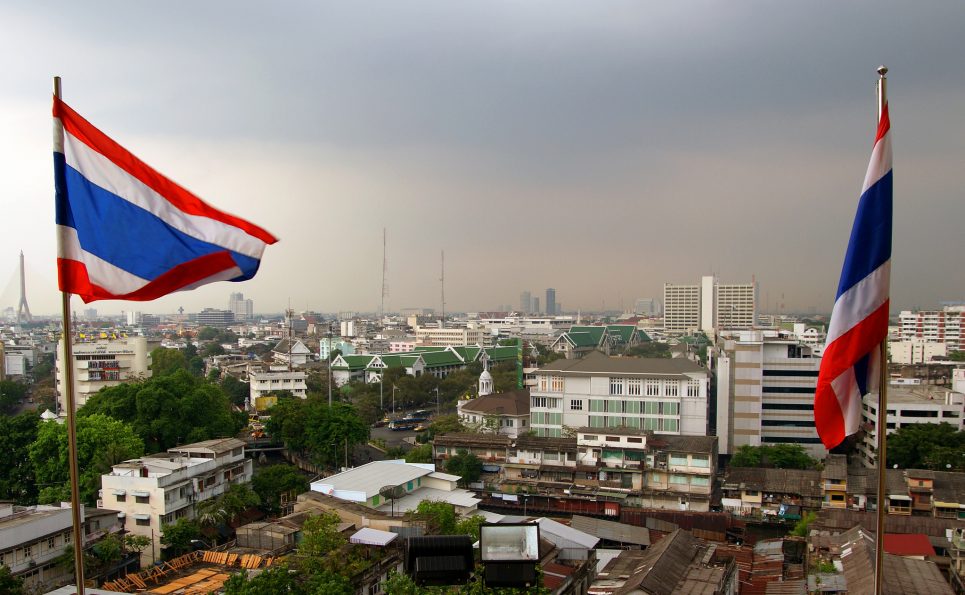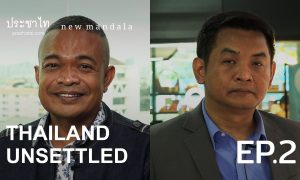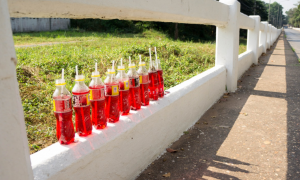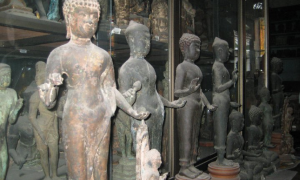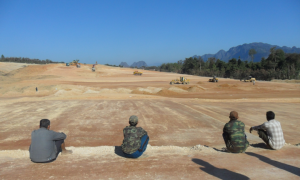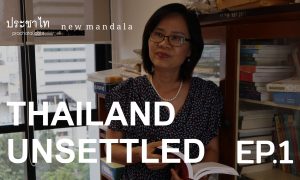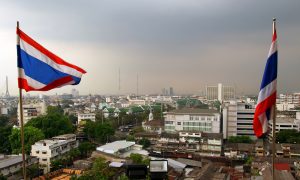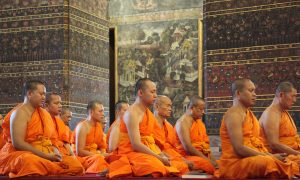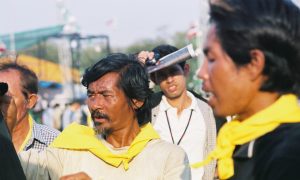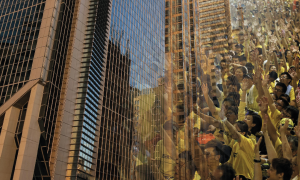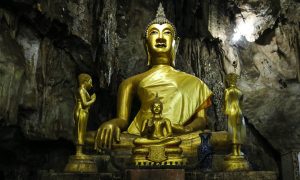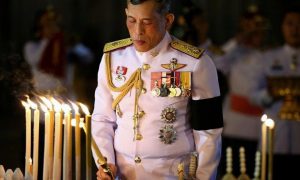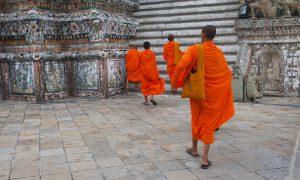How can Thailand “move on” from a decade of mass political contestation—unrest which was halted, but hardly resolved, by large-scale state violence and the military’s eventual seizure of power?
Lost in literature: the misuse of western sources and perspectives [Part III]
On the the misuse of western historical sources in the search for Suvarnabhumi.
Thailand’s new left-wing political parties: rivals or allies?
"The advent of the Commoners’ Party represents a more exciting, radical break with the status quo [than the Future Forward Party]—one that has so far kept class privilege of the likes of Juangroongruangkit intact," writes Kriangsak Teerakowitkajorn.
Thai political rap before it went viral
The young rappers who shot to national attention when they released Prathet Ku Mi honed their skills in a vibrant Thai indie rap scene that has been growing bigger in recent years—and growing more political, too.
Making Thailand’s southern peace dialogue meaningful
Prayut has told media that the peace dialogue is “not about negotiation”.
Thailand’s Rap Against Dictatorship
“Prathet ku mi” has reopened the most sensitive wound of Thailand’s past for a new generation.
Lost in literature: the political and religious consequences of Suvarnabhumi [Part II]
On nationalism, religion, archaeology, folklore and pseudo-history.
Lost in literature: why we need to stop the quest for Suvarnabhumi [Part 1]
The idea of finding the El Dorado of Asia is a continuing obsession.
Introducing ‘Rupture: nature–society transformation in mainland Southeast Asia’
Studying structural reconfigurations of nature and society in the Mekong region and beyond.
Thailand Unsettled #1: The Military (with Puangthong Pawakapan)
In the first episode of Thailand Unsettled, Puangthong Pawakapan tackles the theme of "the military", narrowing in on the Internal Security Operations Command
[AUDIO] Whither academic freedom in Thailand?
A discussion on the state of academic freedom in Thailand, and what Australian scholars can do to show solidarity with Thai colleagues.
Whither academic freedom in Thailand?
Craig Reynolds overviews the contingent, context-dependent nature of academic freedom in Thailand.
Thailand’s sangha: turning right, coming full circle
Thailand’s military government has passed an amendment to the Sangha Act that places the power to appoint and remove the twenty members of the Sangha Council, the highest governing body in the Thai Buddhist order, under the king’s power.
Nation-religion-king: keywords in Thailand’s Royal Institute Dictionaries
While governments since at least Rama VI have defined Thainess by the ideology of nation-religion-king, comparing editions of the Royal Institute Dictionaries shows the changing meanings of these words.
50 shades of yellow: how conservatism overwhelmed liberalism in the anti-Thaksin movement
How did royalist, nationalist and anti-democratic forces overwhelm the originally heterogenous yellow-shirt movement?
Wielding the purse strings of Southeast Asian civil society
Illiberalism at home, and pro-market ideologies abroad, are putting pressure on Southeast Asian civil society organisations' financial health.
Flexibility, but not security, in Thailand’s platform economies
เศรษฐกิจแพลตฟอร์มจากมุมมองของแรงงานในประเทศไทย Platforms such as Uber and Airbnb entice labourers into job insecurities that may not be perceptible in the short term.
Myth and politics in Thailand’s cave rescue operation
As the rescue operation takes on unprecedented proportions, stories of true heroism are assuming Buddhist undertones.
Has Rama X revived Thailand’s death penalty?
There are strong indications that Teerasak Longji submitted a petition for royal clemency. But unlike those condemned before him, his plea for clemency was rejected by His Majesty the King.
Sceptres of instability: why spirit mediums haunt Thailand’s junta
Why are new forms of spirit mediums proliferating under the NCPO's rule? การกลับมาของร่างทรงในยุคขาลงของรัฐบาลทหาร 4.0 สะท้อนความไม่มั่นคงในชีวิตของคนไทย
What’s behind the “purging” of the Thai sangha?
The reasons behind several recent demotions and arrests of high-ranking Bangkok monks are more politically conniving than simply an attempt to “purify" the sangha.
 Facebook
Facebook  Twitter
Twitter  Soundcloud
Soundcloud  Youtube
Youtube  Rss
Rss 